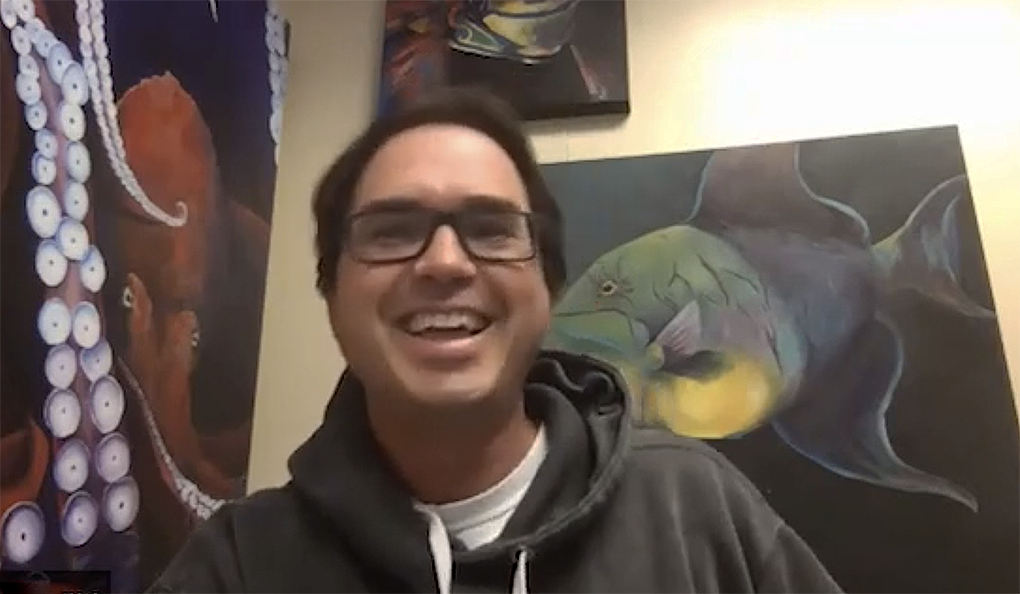
Dr. Andrew Rhyne, Professor of Marine Biology at Roger Williams University, is no stranger to analyzing the aquarium trade and encouraging reforms where needed. In addition to ongoing marine aquarium aquaculture research in his New England lab, he is currently pursuing research into better methodologies to detect the use of cyanide in fisheries.
With the sudden worry over the recently passed H.R. 4521, Dr. Rhyne is hardly surprised. First and foremost, Rhyne wants aquarists to know that in his opinion and experience, “This amendment to the LACEY Act has no chance of passing [in the Senate]. Senators are unlikely to allow an amendment to the LACEY Act to be stuck into the COMPETES Act [about all the legislation snuck into H.R. 4521].” Other legislative observers have privately given much higher odds that the Lacey Act amendments approved by the House might make it past the Senate as well. On the high side, up to a 25% chance.
The real question that Dr. Rhyne poses to the aquarium industry and hobby, is “How do you channel this hysteria into a place of actually dealing with these problems? This bill is terrible, but it’s symptomatic of the industry’s problems. The aquarium trade needs to get its house in order.”
“Be proactive: clean out the bad actors“
What does that look like? Rhyne suggests that the entities that stand to lose the most are not hobbyists, given that most aquarium hobbyists are not in the hobby “all that long” and, if the aquarium hobby were to be diminished, most participants would simply go do something else with their time and money.
Thus, Rhyne believes it falls to the aquarium industry to shift from a reactive and defensive stance against an ever-increasing onslaught of legislation, to a more proactive and responsible place in the global community.
“If I had an aquarium business,” muses Dr. Rhyne. “I’d be really concerned about smuggling, illegal activities, bad actors in the trade, because these things have the potential to impact my business. Hawaii was a hot mess, but it wasn’t started by the environmentalists, it was a few aquarium fishermen who were not following the laws, collecting where they shouldn’t, that drew attention to the fishery. People need to look at Hawaii’s aquarium fishery as a wake-up call.”
Connecting the dots: Climate change > Endangered Species > Livestock Bans
Rhyne noted that some aquarists and companies involved in aquaculture might think that they will remain insulated from the increasing pressure to shutter the aquarium industry. However, Rhyne’s forecast is not optimistic, suggesting that at some point in the future, most if not all of the corals we keep will wind up as “endangered” in the face of climate change.
Endangered Species Act listings, under the current framework, make no exceptions for captive-propagated animals, a reality that first hit home with attempts to list Amphiprion percula, the Percula Clownfish, as endangered within the ESA.
What needs to change, to summarize Dr. Rhyne’s view, is that the aquarium trade must truly reform into being a net-positive for ecosystems at home and abroad. Only then, he believes, is there a bright future for the industry.
This is a message that Rhyne has been sharing for years. The Marine Aquarium Societies of North America (MASNA) invited Rhyne to speak on this topic at MACNA 2021, and this week released Rhyne’s timely presentation to the public.
Watch The Endangered Trade, courtesy MASNA & MACNA 2021
More to see:
Many additional videos are available to MASNA members, join and log in to watch!
MASNA Welcomes You!





Hi Matt
Greetings from the UK! Where do you stand on the proposed Lacey legislation?
My opinion is that if the aquatics industry is not self regulating and enforcing standards to a high level. Then legislation (probably more restrictive!) will be forced on it by the Government. It’s in everyone’s interests, and for the future of the industry, to weed out bad practices acapture/ culture methods and strive the bestpossibstandards that c
Alex, just saw this question. The proposed legislation does none of what you suggest, and I am strongly opposed to the amendments.
I would like to suggest two clarifications to Andy’s statement about the Hawaii “hot mess”:
It was 7 collectors, not just a few.
Exposing the hot mess was 100% “the environmentalists”. The state preferred to look the other way — we didn’t.